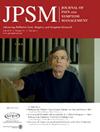The Ethics of Artificial Intelligence-based Screening for End-of-life and Palliative Care
IF 3.5
2区 医学
Q2 CLINICAL NEUROLOGY
引用次数: 0
Outcomes
1. Participants will be able to comprehend the use of artificial intelligence-based prognostication as a form of “screening” for end-of-life.
2. Participants will be able to analyze the ethical challenges that could shape the implementation of artificial intelligence-based prognostication in palliative care and apply ethical principles that can help guide that implementation.
Key Message
Based on qualitative interviews at four U.S. medical centers, palliative care team members view artificial intelligence-based prognostication tools as a form of “screening” – so understood, the established ethics principles governing screening can yield concrete recommendations for the ethical use of these AI prognostic tools.
Abstract
Artificial Intelligence (AI) tools for healthcare applications are rapidly emerging, with some tools already being used and more on their way. One example is AI-based prognostication tools which can predict patient mortality automatically and with accuracy that outperforms clinicians and other available tools. In palliative care, prognostication may be particularly important; these tools may change practice in ways we do not fully understand and raise important ethical and implementation questions.
Objective
To identify the ethical challenges that could shape implementation of AI-based prognostication in palliative care.
Methods
We conducted semi-structured interviews with 45 palliative care physicians, nurses, and other team members from four academic medical centers. Interviews were transcribed and analyzed using grounded theory.
Results
A central theme emerged: implementation of AI-based prognostication was seen as a form of “screening” for end-of-life (EoL). While the idea of prognostication as screening for EoL is novel, the ethics of screening in other clinical contexts is well-established. For this reason, we drew on a model of screening ethics (1) as a framework for our analysis. Interpreting our interview data through this lens, we identified four principles to guide the implementation of AI-based prognostication as screening: (i) screening for EoL should be evidence based, (ii) screening for EoL should take opportunity cost into account, (iii) screening for EoL should distribute costs and benefits fairly, and (iv) screening for EoL should offer respect for persons and their dignity.
Conclusion
Our findings help us understand how palliative care team members view emerging AI-based prognostic tools and offer guiding principles for their implementation as screening for EoL. In the future, it will be important to define the role of screening in this context and to understand how the result of the screening affects decision-making for patients, families, and care teams.
References
1.Bailey MA, Murray TH. Ethics, evidence, and cost in newborn screening. Hastings Cent Rep 2008;38(3):23-31.
基于人工智能的临终和姑息治疗筛查的伦理
Outcomes1。参与者将能够理解使用基于人工智能的预测作为生命终结的一种“筛选”形式。参与者将能够分析可能影响在姑息治疗中实施基于人工智能的预测的伦理挑战,并应用有助于指导实施的伦理原则。根据对美国四家医疗中心的定性访谈,姑息治疗团队成员将基于人工智能的预测工具视为一种“筛查”形式——因此理解,管理筛查的既定伦理原则可以为这些人工智能预测工具的伦理使用提供具体建议。用于医疗保健应用的人工智能(AI)工具正在迅速兴起,一些工具已经在使用,更多的工具正在使用中。一个例子是基于人工智能的预测工具,它可以自动预测患者死亡率,其准确性优于临床医生和其他可用工具。在姑息治疗中,预测可能特别重要;这些工具可能以我们不完全理解的方式改变实践,并提出重要的道德和实施问题。目的确定可能影响姑息治疗中基于人工智能的预测实施的伦理挑战。方法对来自4个学术医疗中心的45名姑息治疗医师、护士和其他团队成员进行半结构化访谈。访谈记录和分析使用扎根理论。结果出现了一个中心主题:基于人工智能的预测的实施被视为生命末期(EoL)的一种“筛查”形式。虽然预测作为EoL筛查的想法是新颖的,但在其他临床背景下筛查的伦理是建立的。出于这个原因,我们利用筛选伦理模型(1)作为我们分析的框架。通过这一视角解读我们的访谈数据,我们确定了四个原则来指导基于人工智能的预测筛查的实施:(i) EoL筛查应该基于证据,(ii) EoL筛查应该考虑机会成本,(iii) EoL筛查应该公平地分配成本和收益,以及(iv) EoL筛查应该尊重个人及其尊严。结论我们的研究结果有助于我们了解姑息治疗团队成员如何看待新兴的基于人工智能的预后工具,并为其作为EoL筛查的实施提供指导原则。在未来,定义筛查在这种情况下的作用以及了解筛查结果如何影响患者、家属和护理团队的决策将是非常重要的。贝利·马,默里·TH。新生儿筛查的伦理、证据和成本。中华卫生杂志2008;38(3):23-31。
本文章由计算机程序翻译,如有差异,请以英文原文为准。
求助全文
约1分钟内获得全文
求助全文
来源期刊
CiteScore
8.90
自引率
6.40%
发文量
821
审稿时长
26 days
期刊介绍:
The Journal of Pain and Symptom Management is an internationally respected, peer-reviewed journal and serves an interdisciplinary audience of professionals by providing a forum for the publication of the latest clinical research and best practices related to the relief of illness burden among patients afflicted with serious or life-threatening illness.

 求助内容:
求助内容: 应助结果提醒方式:
应助结果提醒方式:


